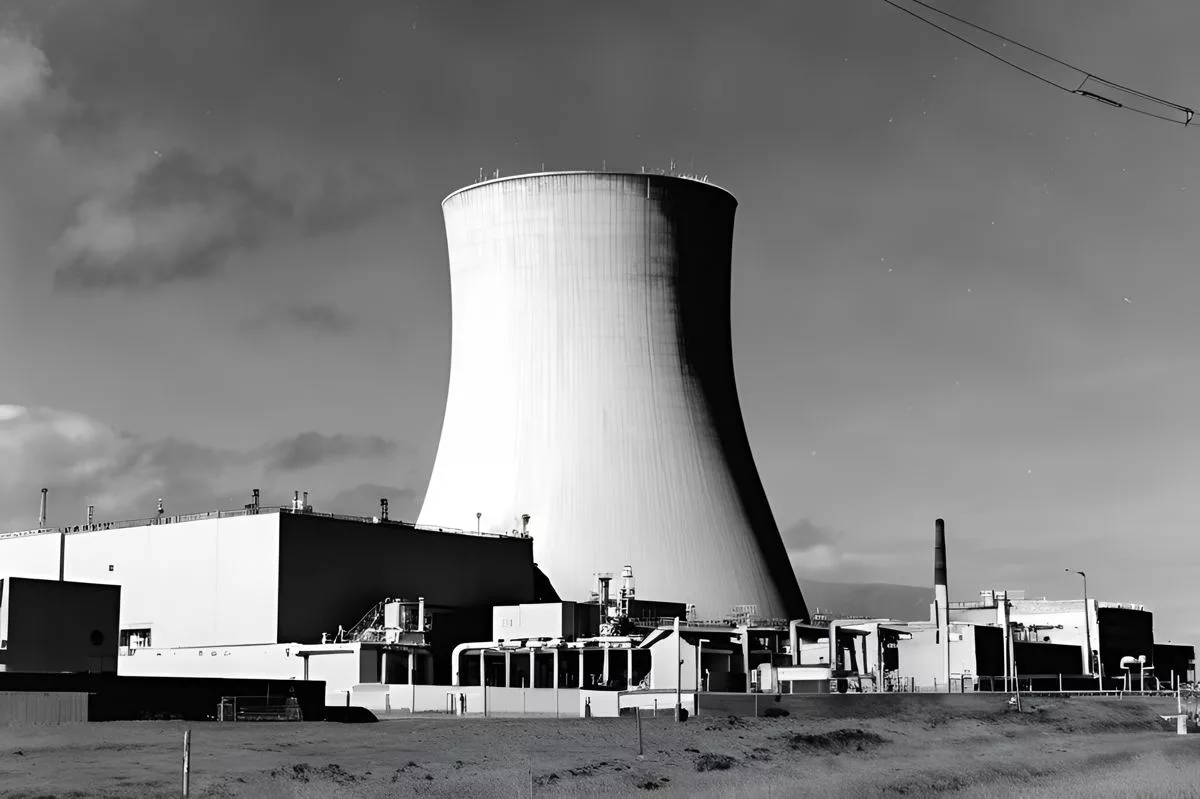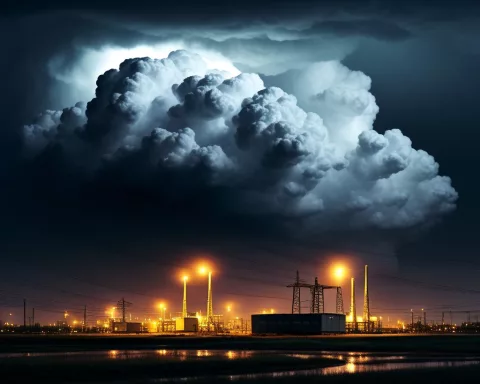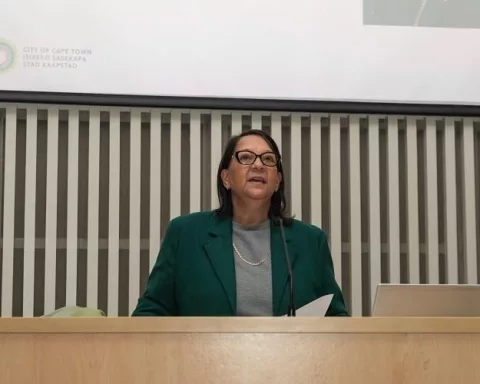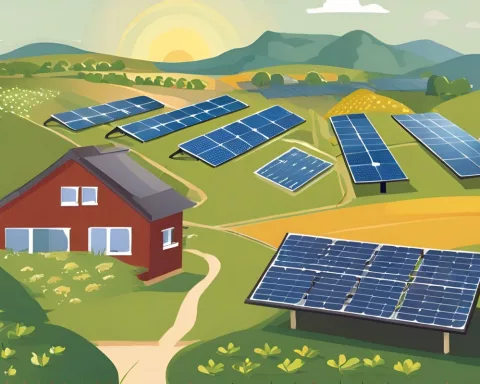South Africa’s commitment to nuclear energy is evident in its Koeberg Extension Project. The project aims to extend the life of the Koeberg nuclear power station by 20 years, ensuring the country’s energy future. Koeberg provides 5% of Eskom’s power generation and is a crucial element in South Africa’s energy ecosystem. The project highlights the country’s technical expertise and dedication to developing domestic talent.
The Significance of South Africa’s Koeberg Extension Project
What is the Koeberg Extension Project and why is it important for South Africa’s energy network? The project aims to extend the functional life of the Koeberg nuclear power station by 20 years, securing the country’s energy future. Situated 30 km north of Cape Town, Koeberg provides 5% of Eskom’s power generation, making it a pivotal element in South Africa’s energy ecosystem. The project highlights the country’s technical capabilities and dedication to fostering domestic expertise and talent.
South Africa’s unwavering dedication to nuclear energy is prominently illustrated by its state-owned power utility, Eskom’s recent unveiling of a grand scheme to prolong the Koeberg nuclear power station’s functional longevity by 20 years. This project, costing a staggering R21 billion, symbolises South Africa’s technical capabilities and determination to secure their energy future. Bheki Nxumalo, Eskom’s group executive for generation, has announced this noteworthy venture, marking a new chapter in South Africa’s energy landscape.
The Significance of Koeberg in the Energy Ecosystem
Situated 30 km north of Cape Town, the Koeberg nuclear power station has been a pivotal element of South Africa’s energy network for the past four decades. The plant’s significant contribution to Eskom’s overall power generation – a robust 5%, with each of its two units producing an impressive 920MW – highlights the importance of this ambitious life extension project. The magnitude of Koeberg’s role in South Africa’s power generation narrative underscores the necessity of this life extension project.
Regulatory Approval and Ongoing Work
Eskom recently received a thumbs up from the National Nuclear Regulator (NNR) for an extra 20 years of operation for Unit 1. This approval was the outcome of Eskom adhering to several stringent conditions imposed by the regulatory body. The licence for Unit 2, which continues to be valid until November 2025, is awaiting approval, with a resolution expected by next year.
At present, Eskom is engrossed in finalising the steam generator replacement programme at Unit 2. Nxumalo has expressed optimism that this unit will resume operation by October. Insights from the delays faced during Unit 1’s steam generator replacement are being utilised to expedite this process.
The Role of Nuclear Energy in a Cleaner Future
Given its minimal carbon footprint, nuclear energy aligns perfectly with the worldwide and national narrative of transitioning to eco-friendlier energy sources. In light of this, Eskom is contemplating issuing carbon credits, a move that could improve its revenue, according to Velaphi Ntuli, Koeberg’s general manager.
However, extending Unit 1’s operation is subject to an array of essential checks and balances. The NNR has imposed a specific set of 29 conditions on Eskom, whose fulfilment is obligatory for continued operation. Keith Featherstone, Eskom’s Chief Nuclear Officer, categorically stated that while the licence does provide the potential for a 20-year operation, it does not automatically ensure it.
The strategic decision by Eskom to apply for a 20-year licence, rather than a longer one, allows for the development of more precise short-term forecasts and analyses. These, in turn, justify the continued operation of the aging plant convincingly.
Future Nuclear Prospects and Local Talent Development
The decision to prolong Koeberg’s operational life aligns with the government’s plan to keep nuclear energy as a key component of the national energy composition. This move also sets the stage for potential new nuclear build programmes. This vision is reinforced by the earmarking of two locations, Duynefontein in the Western Cape and Thyspunt in the Eastern Cape, for potential future nuclear plants akin to Koeberg.
The enduring performance of Koeberg stands as a testament to South Africa’s engineering talent. Despite the loss of several proficient colleagues to the United Arab Emirates, the government and Eskom remain committed to nurturing local skills for Koeberg’s future operation. The project, therefore, signifies not just a technical accomplishment but a dedication to fostering domestic expertise and talent.
In summary, the initiative to extend the operational life of Koeberg is a significant landmark, epitomising the country’s commitment to energy security, sustainability, and technical excellence. The successful accomplishment of this project would further consolidate nuclear energy’s standing in South Africa’s energy narrative, all while contributing to the global effort against climate change.
1. What is the Koeberg Extension Project and why is it important?
The Koeberg Extension Project is a plan to extend the life of the Koeberg nuclear power station by 20 years, ensuring South Africa’s energy future. Koeberg provides 5% of Eskom’s power generation and is a crucial element in South Africa’s energy ecosystem.
2. What is the role of Koeberg in South Africa’s energy network?
Koeberg provides 5% of Eskom’s power generation, making it a pivotal element in South Africa’s energy ecosystem. The plant’s significant contribution to Eskom’s overall power generation highlights the importance of this ambitious life extension project.
3. What is the status of regulatory approval and ongoing work for the Koeberg Extension Project?
Eskom recently received regulatory approval for an extra 20 years of operation for Unit 1 and is awaiting approval for Unit 2. At present, Eskom is finalizing the steam generator replacement program at Unit 2 and hopes to resume operations by October.
4. What is the role of nuclear energy in a cleaner future?
Nuclear energy aligns perfectly with the worldwide and national narrative of transitioning to eco-friendlier energy sources due to its minimal carbon footprint. Eskom is contemplating issuing carbon credits, which could improve its revenue.
5. What are the future nuclear prospects and local talent development in South Africa?
The decision to prolong Koeberg’s operational life aligns with the government’s plan to keep nuclear energy as a key component of the national energy composition and sets the stage for potential new nuclear build programs. The project signifies a dedication to fostering domestic expertise and talent.
6. What are the conditions imposed on Eskom for the continued operation of Koeberg?
The National Nuclear Regulator (NNR) has imposed a specific set of 29 conditions on Eskom, whose fulfillment is obligatory for continued operation. While the license provides the potential for a 20-year operation, it does not automatically ensure it.












